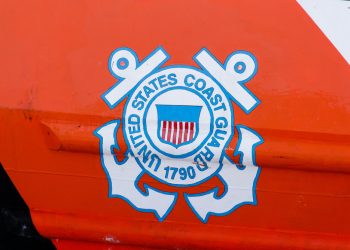U.S. Coast Guard (USCG) announced the Center for Arctic Study and Policy. This new center will house the USCG’s academic think-tank for Arctic maritime operations, building a nexus between operators, indigenous community members and policymakers on evolving Arctic issues.
The Arctic, long known as a remote and unforgiving region, is transforming and a new ocean is opening. Indeed, the lowest Arctic sea ice extent on record occurred in September 2012. It is a region of vast potential resources, with an estimated 13 percent of the world’s undiscovered oil and 30 percent of undiscovered gas. It is a region with the promise of new maritime trade routes. From 2008 to 2012, traffic through the Bering Sea increased by 118 percent. As an Arctic nation, the United States has substantial interest in the future of the region; and as an Arctic operator, the USCG must ensure it is ready for whatever the future brings.
Unpredictable ice conditions, interest in untapped resources and intensifying maritime traffic are just a few of the many demands now upon the region. These demands, and many more unknowns of the future, underscore the need for broadening partnerships in the region; a key element of the USCG’s Arctic Strategy.
Vice Commandant of the USCG Vice Adm. Peter Neffenger spoke at the opening of the center. Having spent a significant amount of time at both poles, the Vice Commandant has a wealth of personal experience with operations in the Arctic that have shaped his understanding of the need for partnerships and responsible maritime development.
“No single nation has the sovereignty, capacity or the resources to address all of the challenges the Arctic region is facing,” said the Vice Commandant. “We must enhance our relationships with partner nations and seek cooperative approaches to shared interests. Good governance and stewardship of this vital region requires federal, state, local, tribal and international support and cooperation,”
The USCG Academy is the a natural fit to house the new center as there is precedent in the New London campus bridging the USCG with key partners. In April 2012, the Center for Maritime Policy and Strategy was established to strengthen partnerships within the maritime community as a hole. Today CMPS is a place that promotes maritime policy and goals, facilitates research and expands the exchange of information. The Center for Arctic Study and Policy will build upon the foundation established by CMPS, honing in on emerging Arctic issues and collaboratively working with DHS Science and Technology Directorate’s network of centers of expertise and others.
With a small nucleus of staff – the center’s initial staff will include Andrew Wood and Dr. Rebecca Pincus – largely visiting professors, military detailees, academic fellows and grant based researchers will augment the CASP. CASP will also bridge with other academic institutions as permanent and visiting staff alike will have opportunities to partner with further research institutions and initiatives. In fact, collaboration has already begun with the Coast Guard Research and Development Center, DHS Science and Technology Directorate’s network of centers of excellence and other academic centers.
“The Center for Arctic Study and Policy has the opportunity to position itself as the premier operationally focused Arctic research institute,” said the Vice Commandant.
The collocation of the center with the USCG Academy will also have positive corollary effects on future leaders of the service. Cadets will benefit from the CASP presence at the Academy as visiting professors and researchers will increase the range of information the cadets are exposed to though guest lectures, mentoring and sponsorship of cadet research projects. Additionally, research products out of CASP will be leveraged to generate policy recommendations for enhancing national Arctic operations, playing a significant role in developing expertise and advising policy makers. Ultimately, CASP’s work will help the USCG realize its strategic objectives in the Arctic and advance the service’s goals of ensuring safe, secure and environmentally responsible maritime activity.
“We cannot be everywhere,” said the Vice Commandant. “But the public that we serve and the international partners who rely upon us, expect us to be flexible, smart and Always Ready to meet new challenges”
Source: USCG Blog
In the outbreak, I was open with you propecia before and after has changed my being. It has become much more fun, and now I have to run. Just as it is improbable to sit.






























































